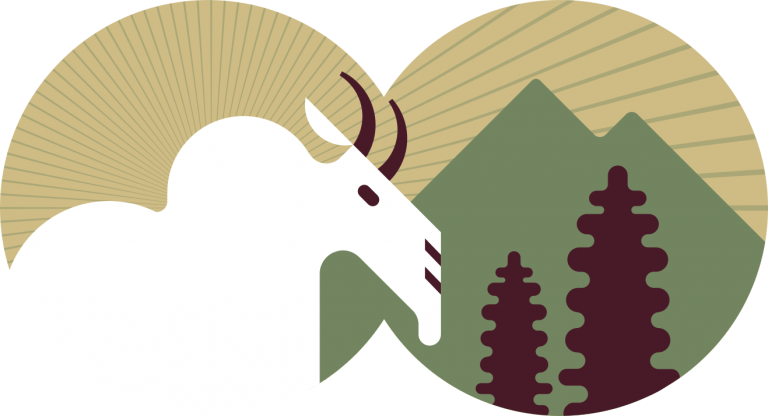Mountain goat
A speck of white against a wall of grey. That’s how to best describe the mountain goat for those in search of this rock climbing master around the cliffs of Lillooet. Because mountain goats prefer to cling to their cliffside home, you will need to your binoculars to spot these majestic creatures. If you manage to spot one, you will see both males and females have black horns which both sexes use to battle one another.

Where it Lives
Mountain goats live where no other animals will! They are found in the alpine and subalpine where they feed on vegetation of all types. Mountain goats are not picky eaters!
A Cayoosh mountain goat survey in 2008 counted 210 mountain goats in this area. All of these sightings occurred between about 5,000 and 8,000 feet in elevation!
Fun fact: in the 1990’s some of Lillooet’s mountain goats were transplanted to other areas in BC to help with recovery efforts!
Conservation Concern
Mountain goats are BLUE-LISTED in British Columbia, meaning they are at risk. A survey of the Cayoosh region in 2008 estimated only 350 goats for this area, representing a decline of about 50% from a decade earlier.
Mountain goats are sensitive creatures and do not like to be disturbed. Helicopter traffic is an important type of disturbance that can be harmful to mountain goat groups. Helicopters are therefore recommended to stay back 2000 m horizontally and 400 m vertically from mountain goat habitat.








